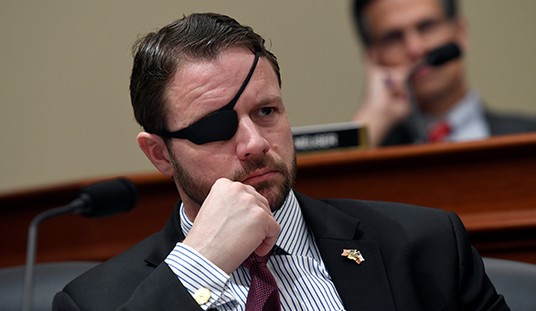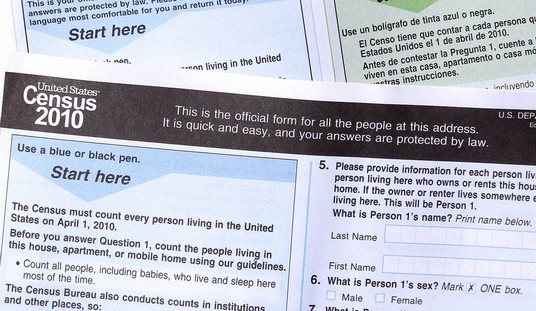Scott Brown’s earthshaking Senate victory in Massachusetts last week sent observers across the political universe into heart palpitations. Democrats were simply shocked that the seat held by Edward Kennedy since 1962 would fall to a GOP state senator with little name recognition or machine power in the “bluest of blue states.” Republicans (and especially conservatives) saw their dreams come true in the “Massachusetts miracle.”
This was an electoral triumph recalling a political “shot heard ’round the world.” For the establishment media and other commentators, the Bay State shocker was most quickly framed as holding grave implications for the Obama administration’s health care agenda in Congress. With Senator-elect Brown about to become the GOP’s 41st vote in the upper chamber, many analysts have concluded that it’s do-over time for the Democrats.
But also front and center has been speculation on the prospects of Brown’s “Massachusetts model” for this year’s midterm congressional elections. For example, an analysis from Michael Barone predicts extremely favorable electoral conditions for GOP House candidates this year. Barone suggests that Republicans — should they run as strongly as Scott Brown on January 19 — have a shot at winning in the 332 districts that “voted 63% or less for Obama” in the 2008 presidential election. On the Senate side, congressional handicapper Charlie Cook, writing prior to January 19, said that Republicans were likely to pick up four to six seats in the upper chamber, and that the vulnerable Democrats have a “total of nine seats in play.”
Among those nine “most endangered” seats (listed last) is Barbara Boxer’s in California. And as Cook notes at the entry:
Boxer’s vulnerability depends more on whether former Hewlett-Packard CEO Carly Fiorina turns out to be a sure-footed challenger. There’s no question that if Fiorina chooses to outspend Boxer, it wouldn’t be hard.
Cook’s essay is dated January 12. Since then, of course, we’ve seen Brown’s election to the Senate. In a follow-up article dated January 23, Cook argued that Brown’s campaign was ” like watching a world-class surfer catch the wave of a lifetime.”
Well, the surf’s still churning, especially in California. And there’s been another development as well, captured in this title from the Los Angeles Times on January 13: “Senate Race to Unseat Boxer Takes Unexpected Turn.” It turns out that former U.S. Representative Tom Campbell has abandoned his campaign for the governorship and has shifted his sights on Barbara Boxer’s Senate seat.
A moderate, Campbell is pro-choice and campaigned in 2008 against passage of Proposition 8 (California’s initiative banning same-sex marriage). Initial polls show him leading both Carly Fiorina and Assemblyman Chuck DeVore of Orange County. For example, the prestigious California Field Poll found Campbell favored by 30 percent among likely voters for the GOP nomination in June. Fiorina trails at 25 percent, and DeVore follows at 6 percent (with 39 percent undecided). Campbell’s own internal campaign polling shows him with higher favorables (name recognition) than both Fiorina and DeVore.
Prior to last week, Fiorina and DeVore were running essentially tied in head-to-head matchups (and Fiorina’s numbers had been declining). But the dynamic has changed with the race becoming a three-way contest, and momentum on the ground will be dramatically influenced by events in both California and Washington.
Most crucial is the state’s economy. California is expected to again face a multi-billion dollar budget deficit, and unemployment remains at 12.4 percent, the fifth-highest rate in the nation. And from San Diego to San Francisco, the Golden State’s grassroots tea party movement has been protesting vociferously against the Democratic-socialist takeover in Washington. There’s going to be zero tolerance for RINOs among conservative activists. Carly Fiorina’s already been hammered as “the next Dede Scozzafava,” and DeVore’s long been identified as the only “mainstream conservative” in the race. As Dan Riehl wrote last November:
DeVore is sharp. He combines a solid conservative record and set of ideas with the polish from having worked in D.C. before going on to the Aerospace industry. His returning to electoral politics and being retired military has given DeVore the type of polish and discipline that wins political campaigns.
And I can attest, from a year’s worth of activism in the local tea party movement, that DeVore is going to have a lock on the conservative base of the GOP’s primary electorate. Even local party officials are talking about a “second American Revolution.” Somehow I doubt that Tom Campbell and Carly Fiorina will generate much enthusiasm among the state’s movement activists. Based on this analysis, I expect that Chuck DeVore will emerge as the Marco Rubio of the GOP Senate primary in California (with a similar set of political assets).
The only wildcard is the campaign finance game. But Fiorina’s fundraising success has been below expectations (although she may spend her own fortune), and Campbell is not known as an especially powerful fundraiser either (and campaign finance laws prohibit transfer of funds from the governor’s race to the Senate campaign). That leaves considerable opportunity for DeVore.
While his reported funding is well behind Fiorina’s, public attention has yet to shift to the primaries in a big way. And so, in the months ahead, conservatives may well light a fire under the assemblyman from Irvine. Should the campaign launch a couple of grassroots “tea party money-bomb” fundraisers, we could see a surge in campaign receipts in no time. Scott Brown raised $1.3 million in small contributions in a one-day money-bomb on January 11. No doubt folks will try for a similar effort out west.
Thus with the state’s gridlocked institutions and collapsing fiscal circumstances, the DeVore campaign — viewed as the genuine tea party alternative — has the potential to mobilize a grassroots “Bear Flag revolt.” And should things turn out differently, we’re still going to have an exceptional year in politics.
Something may very well happen, big time, in California.








Join the conversation as a VIP Member